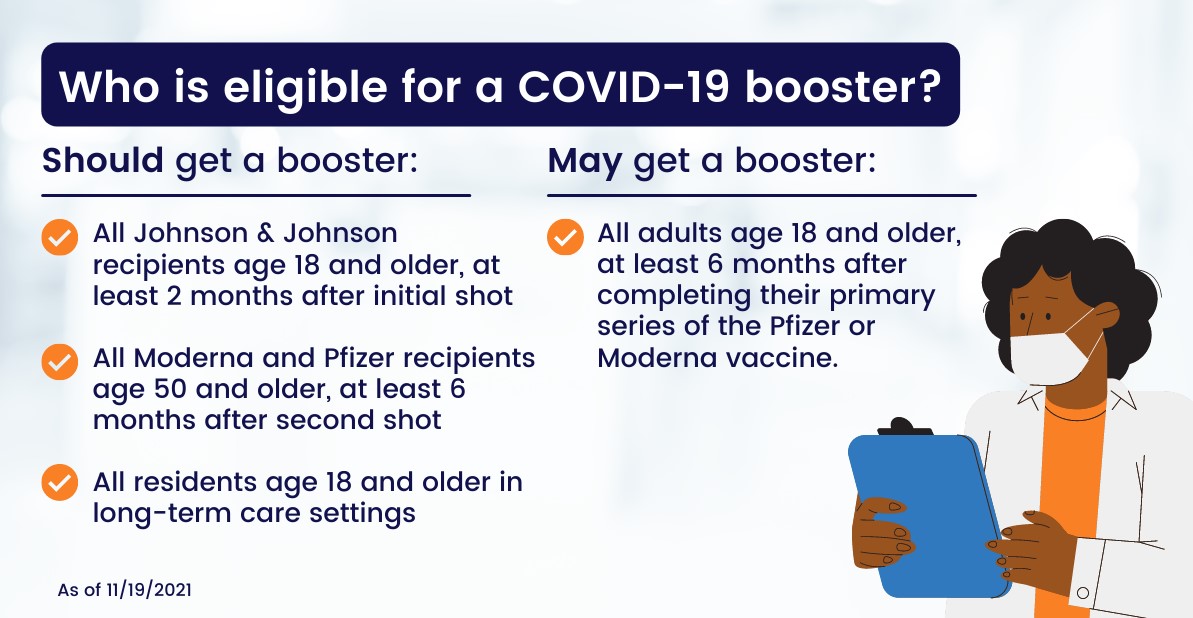COVID-19 Booster
Everyone 18 years and older is eligible for a COVID-19 booster shot.
According to the latest CDC guidance, some groups should get a booster, and some groups may get a booster based on assessment of their individual risks and benefits. CDC recommendations on booster doses are based on the latest data with the goal of ensuring that people have optimal protection against COVID-19 infection, severe illness, and death.
People who should get a booster:
- All Johnson & Johnson recipients age 18 and older, at least 2 months after initial shot
- All Moderna and Pfizer recipients age 50 and older, at least 6 months after second shot
- All residents age 18 and older in long-term care settings
People who may get a booster:
- All adults age 18 and older, at least 6 months after completing their primary series of the Pfizer or Moderna vaccine.
The CDC’s clinical guidance advises people to get the same booster as their initial vaccine, but allows people to mix and match (i.e. get a different COVID-19 booster than their initial vaccine) depending on availability or if they choose to.
The vaccines work.
The COVID-19 vaccines continue to be highly effective in reducing risk of severe disease, hospitalization, and death, including against the delta variant. CDC data show that in August 2021, the risk of dying from COVID-19 in the U.S. was more than 11 times greater for unvaccinated people than for fully vaccinated people. However, scientists are starting to see reduced protection against mild and moderate disease, especially among certain populations. This waning of the efficacy of the vaccine is the reason for the new guidance on booster doses. With cases of COVID-19 still high across the United States and increasing in some parts of the country, the latest CDC recommendations on booster doses help to ensure more people across the U.S. are better protected against COVID-19.
So does this mean people will need a COVID-19 booster every six months?
At this point we don’t know if additional booster doses, beyond the now recommended or available third dose, will be needed. Booster doses are common for many vaccines. The scientists and medical experts who developed the COVID-19 vaccines will continue to closely watch for signs of waning immunity, how well the vaccines protect against new mutations of the virus, and how that data differ across age groups and risk factors. It is possible that the current booster dose could result in long lasting immunity or alternatively that additional booster doses might be needed in the future, and scientists will be carefully monitoring that issue.

